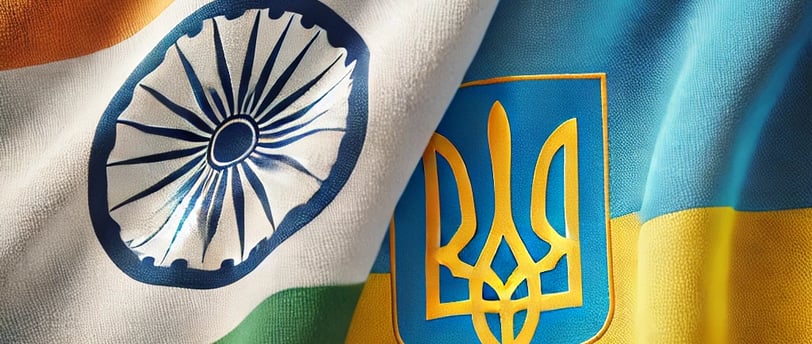Modi Champions Diplomacy: India Offers to Navigate Peace Talks in Ukraine
India Peace Diplomacy


In a significant diplomatic move, Indian Prime Minister Narendra Modi expressed India's readiness to assist in finding a peaceful resolution to the ongoing conflict in Ukraine. In a statement that highlights India's growing role on the global stage, Modi emphasized the importance of dialogue and diplomacy, urging all parties involved to engage in meaningful negotiations.
Speaking at a high-level meeting, Modi reiterated India's long-standing commitment to peace and stability, stating, "India stands ready to contribute to any effort that can help bring peace to Ukraine. We believe that dialogue is the most powerful tool to resolve conflicts, and we are prepared to support all diplomatic initiatives aimed at ending the violence."
The Prime Minister's offer comes at a time when the conflict in Ukraine has continued to escalate, causing widespread devastation and a humanitarian crisis. The war, which began in 2014 and intensified in 2022, has resulted in significant loss of life, displacement of millions, and economic turmoil in the region. Despite numerous attempts at ceasefires and peace talks, the conflict has persisted, with no end in sight.
India's neutral stance on the Ukraine conflict has been a subject of international interest. While India has maintained strong relations with both Russia and the West, it has refrained from taking sides in the conflict, instead advocating for peaceful resolution through dialogue. Modi's recent statement underscores India's position as a potential mediator, leveraging its relationships with all parties involved to foster peace.
"India's role as a mediator can be pivotal," said Dr. Ramesh Kumar, a professor of international relations at Jawaharlal Nehru University. "India has maintained a balanced approach throughout the conflict, which gives it the credibility to bring both sides to the negotiating table. Moreover, India's historical emphasis on non-violence and peace makes it a natural candidate for such a role."
The Prime Minister also highlighted the importance of addressing the humanitarian crisis in Ukraine. He called for increased international cooperation to provide relief to those affected by the conflict, including refugees and internally displaced persons. "The suffering of innocent civilians must come to an end," Modi stated. "We urge the international community to come together to provide humanitarian aid and support to the people of Ukraine."
India's offer to mediate in the Ukraine conflict is seen as a continuation of its broader foreign policy strategy, which seeks to strengthen its global influence by playing a constructive role in international affairs. As a member of the United Nations and the G20, India has consistently advocated for peaceful resolution of conflicts and has contributed to peacekeeping missions around the world.
However, India's offer to mediate is not without challenges. The complexity of the Ukraine conflict, with its deep-rooted political, historical, and cultural dimensions, presents significant obstacles to any peace process. Additionally, the involvement of multiple international actors, including NATO and the European Union, adds layers of complexity to any potential negotiations.
Despite these challenges, Modi's statement has been welcomed by various international stakeholders. The United Nations Secretary-General, António Guterres, praised India's commitment to peace, stating, "India's offer to mediate is a positive step towards finding a peaceful solution to the conflict in Ukraine. We encourage all parties to consider this offer and engage in constructive dialogue."
As the situation in Ukraine remains tense, India's offer to mediate peace provides a glimmer of hope for a resolution. Whether India can successfully facilitate negotiations remains to be seen, but the country's willingness to step up as a global peacemaker reinforces its growing influence on the world stage.
